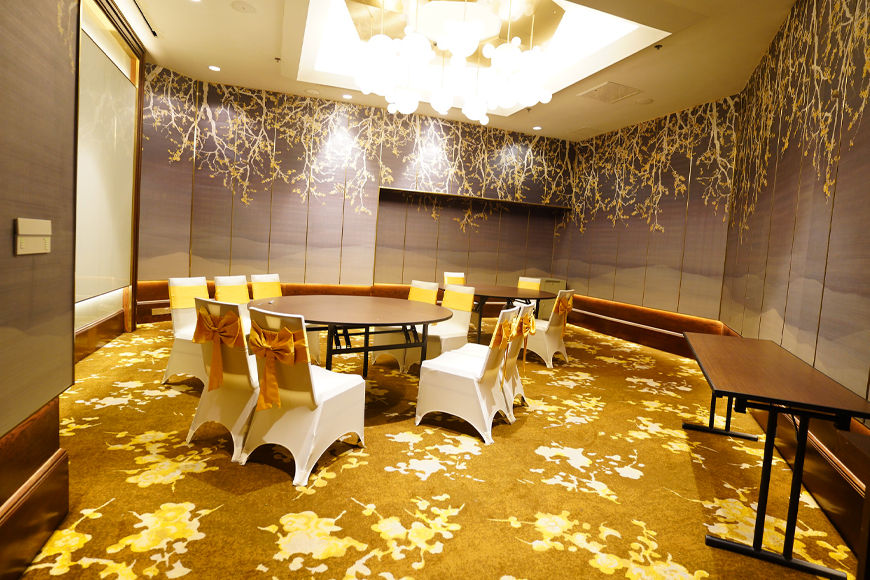Responsible Business Tourism: fake or reality?
Today more than ever, travelers are looking for meaning. More and more tourists are sensitive and vigilant to the eco-responsible dimension of their trip, whether it is the destination, infrastructure or activities on offer. The business tourism sector confirms this trend.

Can a business tourism be sustainable? Photo :Petmal for Getty Images/iStockphoto
Introduction
Business tourism also has an impact on the environment and local populations. It generates greenhouse gas emissions, waste, noise, disruption of ecosystems, social inequalities, ... Faced with these challenges, more and more business tourism actors are engaging in a social and environmental responsibility approach, aiming to reduce their ecological footprint and promote the sustainable development of the territories visited. Focus on responsible business tourism, in general and more particularly in Vietnam.
Responsible business tourism involves the participation of all relevant stakeholders: business travel operators, tourism service providers, corporate clients, business travellers and local stakeholders. Chanting the motto “Green is the New Glam”, it is based on principles such as:
- •Reduce the environmental impact of business travel by promoting the least polluting modes of transport, optimizing travel, limiting energy and water consumption, promoting waste recycling, offsetting carbon emissions, ...
- •Ensure the safety and health of business travellers, respecting the working conditions and rights of employees of tourism service providers, combating sexual exploitation, child labour, discrimination, ...
- •Encourage cross-cultural exchanges, educate business travellers about local culture and traditions, support cultural and natural heritage preservation initiatives, ...
- •Promote the involvement of local stakeholders in the design and implementation of business trips, contributing to the economic and social development of the territories visited, supporting solidarity projects and corporate social responsibility actions, etc., support for local development.

Balancing Business and Sustainability - Photo : Mr Linh's adventure - Melia Hotel, Ha Noi
What are the benefits of responsible business tourism?
Responsible business tourism has many benefits, both for business travel operators, corporate clients, business travellers and local stakeholders.
For the organizers of business trips
Responsible business tourism is an opportunity to:
- •Stand out from the competition by offering an innovative and attractive offer that meets the growing expectations of businesses and business travelers for sustainable tourism
- •Build customer loyalty through trust and satisfaction based on ethical commitment and shared values.
- •Improve the brand image of the trade travel organizer by strengthening its reputation as a responsible and committed player in sustainable tourism.
- •Reduce costs, optimize resources and limit expenses related to the social and environmental impacts of business travel.
For business customers
Responsible business tourism promotes:
- • Strengthening team cohesion, fostering exchanges, solidarity and entrepreneurship, through enriching and meaningful travel experiences.
- • Motivating employees by offering them business trips that value their work, involvement and performance while respecting their well-being and personal development.
• Performance improvement drives creativity, innovation and employee productivity through a work environment conducive to skills development and problem solving.
- • Social responsibility, demonstrating the company’s commitment to sustainable development, environmental protection, respect for human rights and the promotion of cultural diversity.
For business travellers
Responsible business tourism offers:
- • Enjoying exceptional travel experiences, discover unique and authentic destinations, participate in entertaining and educational activities, meet friendly and hospitable locals, …
- • Enriching your knowledge by learning about the challenges of sustainable tourism, the culture and history of the countries visited, the best practices to adopt to travel responsibly, …
- • Improving coping, communication, cooperation, leadership, stress management, ...
- • Contributing to a cause, support solidarity projects, respect the environment,

Trusted DMC promote the Community Based Tourism - Photo :Mr Linh's adventure
For local stakeholders
Responsible business tourism enables:/div>
- • Creating jobs, generate income, diversify funding sources, stimulate local economic activity, ...
- • Improving living conditions, building capacity, promoting education, health, equality, participation, …
- • Improving the environment, preserve natural resources, reduce pollution, protect biodiversity, promote eco-citizenship, ...
- • To benefit from cultural benefits, preserving and enhancing cultural identity, highlighting cultural and natural heritage, promoting intercultural dialogue, …
What are the limits of responsible business tourism?
Responsible business tourism is not free of limitations and challenges hindering its development and implementation. In particular, there is a lack of awareness and training, which can lead to a lack of knowledge or understanding of the issues and principles of responsible business tourism, both on the part of the tour operators, as corporate clients, business travelers and local stakeholders. The relative opacity and questionable effectiveness of the plethora of standards and labels, which can make it difficult to identify and evaluate responsible tourism service providers, and the guarantee of the quality and reliability of responsible business tourism offers. And finally, a frequent lack of coordination and cooperation, with possible consequences of conflicts of interest, misunderstandings, dysfunctions, inefficiencies, between the various actors involved in responsible business tourism.
Responsible business tourism in Vietnam
Responsible tourism in Vietnam can be seen as a remedy for overtourism. The COVID-19 pandemic has highlighted the need to rethink the tourism of tomorrow. However, believing that mass tourism will disappear is naive. It will always be there to stimulate economic growth in a still developing country.

Trusted DMC donate to the children of the most disadvantaged schools - Photo :Mr Linh's adventures
Tourism in Vietnam, a quick overview
Economic rebalancing and distribution
Did you know that? Nearly 2% of Vietnam’s population lives below the poverty line, even as Dragon Country attracts nearly millions of tourists a year, generating more than 10% of the country’s overall GDP. For the record, in the first ten months of 2023, Vietnam welcomed nearly 10 million foreign tourists. The Ministry of Culture, Sports and Tourism has adjusted the target to welcome around 12-13 million international visitors this year (2023).
Overcrowding
As is the case for many destinations, some areas are overcrowded, threatening the ecosystem and the well-being of the population. Let’s quickly mention the famous Halong Bay, Hoi An, Phu Quoc, Sa Pa, Nha Trang.
Did you know? 95% of the tourist flow focuses on 5% of the territory
Economic development and ecological and social threat
Vietnam is attracting more and more tourists, pushing authorities – and investor - to embark on a race to build infrastructure. However, infrastructure is often a threat to natural and cultural heritage.
Dilution of cultural identities
Overtourism has promoted a disneylandisation of territories traditionally welcoming local communities, by overusing local cultures and standardizing their habits and customs
Labels and local networks almost non-existent
Nevertheless, some NGOs, associations and labels are committed to the sustainable development of tourism in Vietnam:
Business tourism in Vietnam, the stakes
According to the World Tourism Organization, by 2025, MICE tourism revenues worldwide will reach more than $1.4 trillion, concentrated in the Europe and Asia-Pacific region.
In recent years, MICE tourism has become popular in Vietnam, with many provinces and cities chosen to host international events.
To increase the attractiveness of MICE tourism, Vietnam has focused on infrastructure investment and launched a series of preferential policies such as free admission or discounts on ticket prices, the use of specific services and increased experiential activities and performance.
Regarding sustainability, while there is little specific information on sustainable MICE tourism in Vietnam, It can be said that considering the country’s emphasis on infrastructure development and preferential policies, Palanche Country is resolutely committed to sustainable practices. In addition, the recovery of the MICE tourism industry after the COVID-19 pandemic shows resilience and adaptability, which are key aspects of sustainability.

Trusted DMC participate in the day of the earth - Photo :Mr Linh's adventures
Responsible business tourism according to Trusted DMC
It can be easy to forget that the exciting and exotic places we visit during our travels are not only great destinations, but also home to the local people and communities with ancient traditions and culture. Because of this, Trusted DMC views sustainability and social responsibility as our top priorities. We want to ensure that the local way of life is preserved and given the chance to thrive without being overtaken by our increasingly globalized society.
In addition, following the Community Based Tourism philosophy, we emphasize authenticity, especially for building materials and architecture. We use traditional houses, built from local materials (reducing environmental impact) and built in authentic styles but with modern equipment, rather than building new modern buildings.
On the other hand, the need for responsible environmental and conservation initiatives increases as the world becomes more populated. We also inform our customers of the importance of respecting the nature and environments they visit.
The National Tourism Development Strategy for 2030, approved in early 2020 by the Prime Minister, sets out clear directions for development towards green, environmentally conscious and socially responsible growth. Based on these instructions but also – and above all – on the field experience of Mr Lin’s Adventures, Trusted DMC is able to offer MICE trips that harmoniously combine professional expectations, discoveries, exchanges and authentic experiences in which the human being is central, while respecting its culture and environment.
► Step out of your comfort zone! For your next MICE trip, contact Trusted DMC!